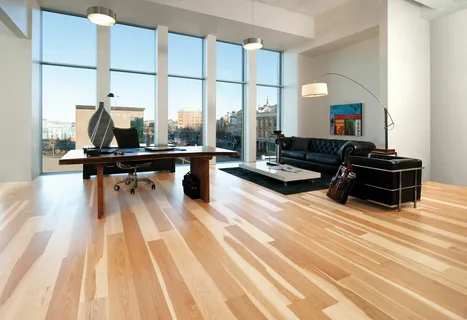Blocked drains are the ultimate headache for any homeowner or business owner. Picture this: water slowly pooling around your ankles in the shower, a foul smell lingering in the air, and strange gurgling noises coming from the sink. These are all telltale signs of blocked drains. But fear not, for we’re here to provide you with Melbourne’s ultimate guide to tackling this common issue head-on.
Understanding the Issue
Blocked drains in Melbourne occur when foreign objects or substances obstruct the flow of water through pipes, preventing proper drainage. It’s like trying to navigate through a crowded street – the more obstacles there are, the slower the progress.
Importance of Timely Intervention
Ignoring a blocked drain can lead to serious repercussions, including structural damage, health hazards, and costly repairs. It’s crucial to address the issue promptly to avoid further complications.
Common Causes of Blocked Drains
Grease and Fat Build-Up
Just like arteries clogged with cholesterol, drains can become blocked by the accumulation of grease and fat from cooking. These substances solidify over time, narrowing the passage for water flow.
Hair and Soap Residue
In the battle against blocked drains, hair and soap residue are formidable foes. They cling to the walls of pipes, forming stubborn clogs that refuse to budge.
Foreign Objects
From children’s toys to toiletries, foreign objects have a knack for finding their way into drains and causing havoc. It’s like trying to flush a tennis ball down the toilet – a recipe for disaster.
Tree Root Intrusions
Nature’s relentless pursuit of water can spell trouble for underground pipes. Tree roots seek out sources of moisture and can infiltrate drains, causing blockages and structural damage.
Structural Defects
Cracked or collapsed pipes can impede the flow of water, leading to frequent blockages. It’s essential to address any underlying structural issues to prevent recurring drain problems.
Signs of Blocked Drains
Slow Drainage
If water takes ages to drain from sinks, showers, or toilets, it’s a clear indication of a blocked drain. It’s like watching a snail race – painfully slow progress.
Foul Odors
Unpleasant odors emanating from drains are a sure sign of trouble brewing beneath the surface. It’s like having a rotten egg hidden in your kitchen – you can’t ignore the stench for long.
Gurgling Noises
Strange gurgling or bubbling sounds coming from drains are often a result of trapped air trying to escape. It’s like listening to a symphony of discontent beneath your floors.
DIY Solutions for Blocked Drains
Boiling Water
A simple yet effective remedy for minor blockages, pouring boiling water down the drain can help melt away grease and flush out debris.
Vinegar and Baking Soda
The dynamic duo of household cleaning, vinegar, and baking soda, can work wonders on stubborn clogs. When combined, they create a fizzy reaction that helps dislodge blockages.
Plunging Techniques
Investing in a good-quality plunger can be a game-changer when it comes to clearing blocked drains. With a few vigorous pumps, you can create enough pressure to dislodge stubborn clogs.
Using a Drain Snake
For those hard-to-reach blockages, a drain snake can be your best friend. This flexible tool can navigate through pipes to break apart obstructions and restore proper drainage.
Professional Solutions for Blocked Drains
Hydro-Jetting
A high-pressure jet of water can blast through even the toughest blockages, leaving your drains sparkling clean. It’s like giving your pipes a power wash from the inside out.
Drain Camera Inspection
For a comprehensive assessment of your drain’s condition, a camera inspection is invaluable. This technology allows plumbers to pinpoint blockages and identify any underlying issues.
Chemical Drain Cleaners
While not always recommended due to their potential environmental impact, chemical drain cleaners can be effective for minor blockages. However, caution must be exercised when using these products.
Professional Plumbing Services
When all else fails, it’s time to call in the professionals. Experienced 24 hour Melbourne plumber have the knowledge and equipment to tackle even the most stubborn drain problems effectively.
Prevention Techniques
Regular Maintenance
Prevention is better than cure when it comes to blocked drains. Implementing a regular maintenance schedule can help identify and address potential issues before they escalate.
Installation of Drain Guards
Preventive measures such as installing drain guards can help trap debris before it has a chance to cause blockages. Think of it as a filter for your pipes.
Proper Waste Disposal Practices
Educating household members or employees about proper waste disposal practices can go a long way in preventing drain blockages. Remember, only water, toilet paper, and human waste should go down the drain.
Tree Root Management
If you have trees near your property, regular root maintenance is essential to prevent invasive roots from wreaking havoc on your drainage system.
Environmental Considerations
Eco-Friendly Drain Cleaning Options
In an increasingly eco-conscious world, there’s a growing demand for environmentally friendly drain cleaning alternatives. From biodegradable cleaners to water-saving technologies, there are plenty of green options available.
Impact of Chemical Cleaners on the Environment
Chemical drain cleaners may effectively dissolve blockages, but they also pose a threat to the environment. Their toxic ingredients can contaminate water sources and harm aquatic life.
Safety Precautions
Protective Gear
When attempting DIY drain cleaning, always wear protective gear such as gloves and goggles to shield yourself from harmful chemicals and bacteria.
Handling Chemicals Safely
If using chemical drain cleaners, follow the manufacturer’s instructions carefully and store them out of reach of children and pets. Avoid mixing different types of chemicals, as this can produce hazardous reactions.
Assessing the Severity of Blockage
Identifying Blockage Points
A thorough assessment of your drainage system is essential to identify the location and extent of blockages accurately. This can help determine the most appropriate course of action for clearing the drain.
Gauging Depth of Blockage
Understanding how deep the blockage is can influence the choice of tools and techniques used for clearing the drain. It’s like solving a mystery – the more clues you have, the easier it is to crack the case.
Choosing the Right Tools and Equipment
Understanding Drain Types
Different types of drains require different approaches to cleaning and maintenance. Whether it’s a kitchen sink or a shower drain, knowing the intricacies of each system is key to effective blockage removal.
Selecting Appropriate Tools
Having the right tools for the job can make all the difference when it comes to clearing blocked drains. From plungers to drain snakes, invest in quality equipment to ensure success.
DIY vs. Professional Assistance: Pros and Cons
Cost Comparison
While DIY methods may seem cost-effective initially, repeated attempts can add up in terms of time and money. Professional services may come with a higher price tag but offer long-term solutions.
Time and Effort Consideration
DIY drain cleaning can be time-consuming and labor-intensive, especially for complex blockages. Professional plumbers have the expertise to get the job done quickly and efficiently.
Effectiveness of Solutions
While DIY methods can sometimes provide temporary relief, professional assistance often yields more reliable and long-lasting results. It’s a matter of weighing the pros and cons to determine the best course of action.
Maintenance Tips for Ensuring Long-Term Drain Health
Regular Inspections
Schedule regular inspections of your drainage system to catch potential issues before they escalate into full-blown blockages. Prevention is key to maintaining optimal drain health.
Proper Waste Disposal Education
Educate household members or employees about proper waste disposal practices to minimize the risk of drain blockages. Remember, what goes down the drain can come back to haunt you.
Case Studies: Real-Life Examples and Solutions
Residential Drain Blockages
From hairballs to cooking grease, residential drains face a myriad of challenges. Case studies offer valuable insights into common issues and effective solutions.
Commercial Drain Challenges
In commercial settings, the stakes are higher when it comes to drain blockages. Case studies highlight the unique challenges faced by businesses and the importance of proactive maintenance.
Emerging Technologies in Drain Maintenance
Robotics in Drain Cleaning
Advancements in robotics have revolutionized the way drains are cleaned and maintained. From robotic cameras to automated cleaners, technology is changing the game in drain maintenance.
Smart Drain Systems
Smart drain systems offer real-time monitoring and automated alerts for potential blockages. With predictive analytics, these systems can help prevent drain problems before they occur.
Regulatory Compliance and Local Guidelines
Understanding Local Codes
Compliance with local building codes and regulations is essential when it comes to drain maintenance. Familiarize yourself with local guidelines to avoid fines and penalties.
Compliance with Environmental Regulations
In addition to local codes, it’s crucial to consider environmental regulations when choosing drain cleaning products and techniques. Sustainable practices benefit both your wallet and the planet.
Financial Implications of Blocked Drains
Repair Costs
The cost of repairing blocked drains can vary depending on the severity of the issue and the chosen solution. It’s essential to weigh the financial implications against the long-term benefits of preventive maintenance.
Insurance Coverage
Check your insurance policy to see if blocked drains are covered. While some policies may include drain-related issues, others may require additional coverage or endorsements.
Importance of Timely Intervention: Health and Hygiene Concerns
Bacterial Growth
Blocked drains create the perfect breeding ground for bacteria and other pathogens. Left unchecked, these microorganisms can pose serious health risks to occupants.
Mold and Mildew Formation
Excess moisture from blocked drains can promote the growth of mold and mildew, leading to respiratory problems and allergic reactions. It’s essential to address drainage issues promptly to maintain a healthy indoor environment.
Community Resources and Support Networks
Local Government Initiatives
Many local governments offer resources and support for homeowners and businesses dealing with drain-related issues. From educational programs to financial assistance, help is available if you know where to look.
Community Awareness Programs
Raising awareness about the importance of drain maintenance is key to preventing blockages and protecting the environment. Community outreach programs can educate residents about proper waste disposal practices and sustainable drain cleaning alternatives.
Summary: Key Takeaways for Effective Drain Management
Recap of Main Points
From identifying common causes of blockages to exploring preventive maintenance techniques, effective drain management is essential for maintaining optimal drainage and preventing costly repairs.
Emphasizing Preventive Measures
By implementing regular inspections, educating occupants about proper waste disposal practices, and investing in preventive maintenance, you can minimize the risk of blocked drains and ensure smooth flowing pipes for years to come.
Frequently Asked Questions (FAQs)
How often should drains be inspected?
Regular inspections, ideally once or twice a year, can help catch potential issues before they escalate into full-blown blockages.
Can blocked drains cause structural damage?
Yes, blocked drains can lead to structural damage if left untreated, potentially resulting in costly repairs.
Are chemical drain cleaners safe to use?
While chemical drain cleaners can be effective for minor blockages, they pose environmental and safety risks and should be used with caution.
What should I do if DIY methods fail?
If DIY methods fail to clear a blockage, it’s time to call in the professionals. Experienced plumbers have the expertise and equipment to tackle even the toughest drain problems.
How can I prevent drain blockages in the future?
Preventive measures such as regular inspections, proper waste disposal practices, and investing in drain guards can help minimize the risk of future blockages and ensure long-term drain health.
In conclusion, dealing with blocked drains can be a frustrating experience, but with the right knowledge and tools, you can tackle the issue head-on. From DIY solutions to professional assistance, there are plenty of options available to keep your drains flowing freely. Remember to prioritize preventive maintenance and address drainage issues promptly to avoid costly repairs down the line. With these tips and tricks, you’ll be well-equipped to handle any drain-related challenge that comes your way.





